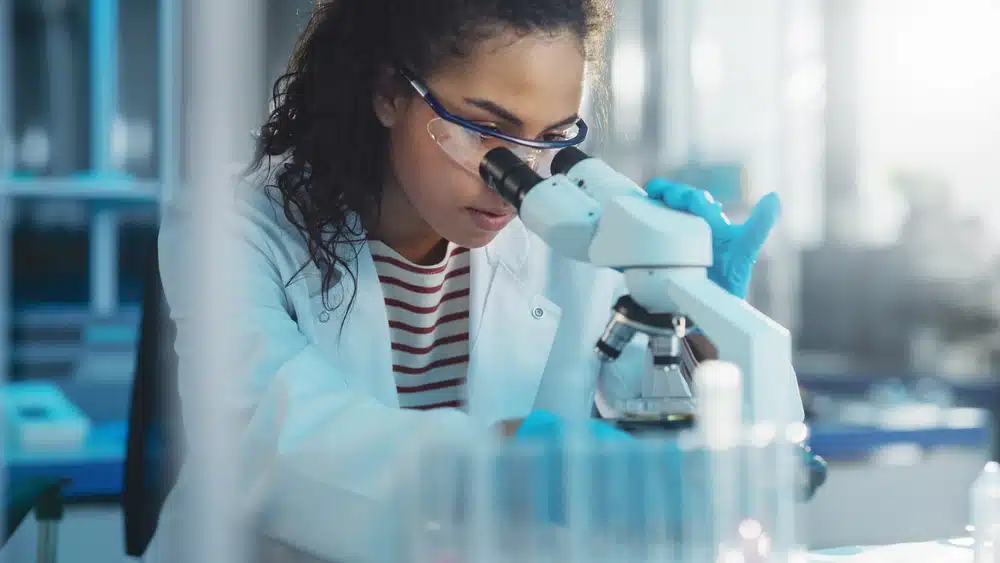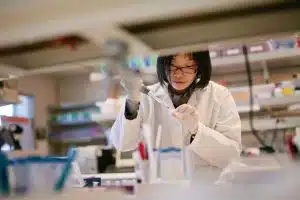Discovering the Best Schools for Forensic Science in the World
Forensic science is a captivating field that combines science and law to solve criminal cases. With the increasing demand for forensic experts, finding the best schools that offer comprehensive education in this specialized discipline is crucial. In this article, we will explore the world’s top schools for forensic science, the criteria to consider when choosing a school, and the notable institutions in different regions. Let’s dive into the fascinating world of forensic science!
Understanding Forensic Science
Forensic science plays a vital role in modern society by providing scientific evidence to support criminal investigations. It involves collecting, analyzing, and interpreting physical evidence from crime scenes. Forensic scientists use their knowledge of biology, chemistry, physics, and other scientific disciplines to assist law enforcement agencies and legal professionals in solving crimes.
Forensic scientists are called upon to gather evidence to help identify the perpetrator when a crime is committed. They meticulously document the crime scene, taking photographs and making detailed sketches to ensure nothing is overlooked. No matter how small, every piece of evidence is carefully collected and preserved for analysis.
Once the evidence is collected, forensic scientists employ various techniques to analyze it. In the case of DNA samples, they use advanced laboratory equipment to extract and analyze the genetic material. This analysis can reveal crucial information about the suspect, such as their identity and potential connection to the crime. Similarly, fingerprints are examined using specialized techniques to determine if they match those of a known individual.
Forensic science is not limited to the analysis of biological evidence. It also encompasses disciplines such as forensic toxicology, which focuses on studying the presence of drugs and toxins in the body. By analyzing blood, urine, or tissue samples, forensic toxicologists can determine if a person was under the influence of drugs or poisoned at their death.
The Role of Forensic Science in Modern Society
The importance of forensic science cannot be understated. It helps identify perpetrators, exonerate the innocent, and bring justice to victims and their families. Whether it’s analyzing DNA samples, examining fingerprints, or reconstructing crime scenes, forensic science provides crucial insights that can make or break a case.
Forensic science has revolutionized the way crimes are investigated and prosecuted. In the past, cases often relied solely on witness testimonies, which could be unreliable and subjective. However, with the advent of forensic science, investigators now have access to objective and scientific evidence that can withstand scrutiny in a court of law.
One of the key contributions of forensic science is its ability to exonerate the innocent. Through DNA analysis, for example, individuals who have been wrongfully convicted can be proven innocent and released from prison. This brings justice to the wrongly accused and highlights the importance of using scientific evidence in criminal investigations.
Key Disciplines within Forensic Science
Forensic science comprises various specialized disciplines. These include forensic anthropology, which focuses on skeletal remains; forensic toxicology, which studies the presence of drugs and toxins in the body; forensic odontology, which deals with dental evidence; and forensic psychology, which examines the behavior and mindset of suspects. These disciplines work together to comprehensively understand crime scenes and contribute to solving cases.
Forensic anthropology is crucial in cases where skeletal remains are the only evidence available. By examining bones, forensic anthropologists can determine the age, sex, and even the cause of death of the individual. This information can be invaluable in identifying the victim and potentially leading to the identification of the perpetrator.
Forensic odontology, on the other hand, focuses on dental evidence. By examining teeth and dental records, forensic odontologists can establish an individual’s identity, especially in cases where the body is severely decomposed or disfigured. Dental evidence can also provide important clues about a crime’s circumstances, such as bite marks that may link a suspect to a victim.
Forensic psychology is another discipline within forensic science that plays a significant role in criminal investigations. By studying the behavior and mindset of suspects, forensic psychologists can provide insights into their motivations and potential involvement in a crime. This information can help investigators build a profile of the suspect and guide their investigation.
In conclusion, forensic science is a multidisciplinary field that uses scientific principles and techniques to aid in criminal investigations. From analyzing DNA samples to examining skeletal remains, forensic scientists play a crucial role in solving crimes and bringing justice to victims and their families. The various disciplines within forensic science work together to provide a comprehensive understanding of crime scenes, ultimately contributing to the successful resolution of cases.
Criteria for Choosing a Forensic Science School
When selecting a forensic science school, several essential factors must be considered. These factors can greatly impact the quality of education and the opportunities available to students.
Choosing the right forensic science school is a crucial step toward a successful career in this field. With the increasing demand for forensic professionals, it is important to carefully evaluate different schools to ensure you receive the best education and training possible.
Here are some additional factors to consider when choosing a forensic science school:
Accreditation and Reputation
One of the first things to look for in a forensic science school is accreditation. Accredited institutions meet specific educational standards and are recognized for their quality of education. Accreditation ensures that the school follows a rigorous curriculum and provides students with the necessary knowledge and skills to excel in their careers.
In addition to accreditation, consider the school’s reputation within the forensic science community. Look for schools with a strong reputation for producing highly skilled forensic professionals. A school’s reputation can be a good indicator of the quality of education and the opportunities available to students.
Furthermore, it is essential to consider the faculty member’s expertise and qualifications. Look for schools with experienced faculty who deeply understand the field and can provide valuable insights and guidance to students.
State-of-the-art facilities are also an important aspect to consider. Look for schools that have well-equipped laboratories and forensic facilities. These facilities should be equipped with the latest technology and equipment used in forensic investigations.
Course Curriculum and Specializations
The curriculum plays a crucial role in shaping a student’s knowledge and skills in forensic science. Look for schools that offer a well-rounded curriculum covering various forensic science disciplines. A comprehensive curriculum should include forensic biology, chemistry, forensic anthropology, and crime scene investigation courses.
Additionally, consider schools that offer specializations in specific areas of forensic science. Specializations, such as forensic biology, digital forensics, or crime scene investigation, can provide focused training in areas that align with your interests and career goals. Specialized training can give you a competitive edge in the job market and open up more career advancement opportunities.
It is also essential to consider the practical aspects of the curriculum. Look for schools that offer hands-on training and practical experience through internships or cooperative education programs. Practical experience is essential in developing the necessary skills and competencies required in the field of forensic science.
Faculty Expertise and Research Opportunities
An experienced and dedicated faculty can significantly impact a student’s educational experience. Look for schools with faculty members with practical experience in the field and active involvement in research. Faculty members who are actively engaged in research can provide students with the latest advancements and trends in forensic science.
Research opportunities can expose students to cutting-edge techniques and technologies, preparing them for real-world forensic challenges. Look for schools that offer research opportunities, such as research assistantships or participation in faculty-led research projects. These opportunities can enhance your understanding of forensic science and provide valuable hands-on experience.
Furthermore, consider the school’s partnerships and collaborations with forensic science organizations and agencies. Schools with strong connections with industry professionals and organizations can provide students networking opportunities and access to internships or job placements.
Choosing the right forensic science school is a decision that should not be taken lightly. It is essential to thoroughly research and evaluate different schools based on their accreditation, reputation, curriculum, faculty expertise, and research opportunities. By considering these factors, you can ensure that you receive a quality education and are well-prepared for a successful career in forensic science.
Top Forensic Science Schools in North America
North American institutions are known for their high-quality forensic science programs. Here are some notable schools in the region:
Spotlight on United States Institutions
The United States boasts several prestigious institutions with exceptional forensic science programs. These include the University of California, Davis, which offers a comprehensive forensic science major; the University of Florida, known for its strong emphasis on research and hands-on training; and the University of New Haven, renowned for its state-of-the-art forensic laboratories.
The University of California, Davis, located in the heart of California’s Central Valley, is a leading institution in forensic science education. The program provides students with a solid foundation in forensic science’s theoretical and practical aspects. Students have access to cutting-edge laboratories and equipment, allowing them to gain hands-on experience in various forensic techniques such as DNA analysis, fingerprint analysis, and crime scene investigation.
The University of Florida, in Gainesville, is another top choice for aspiring forensic scientists. The program offers a rigorous curriculum that combines classroom instruction with extensive research opportunities. Students have the chance to work alongside renowned faculty members who are actively involved in forensic research. The university’s state-of-the-art forensic training facility provides students with a realistic crime scene environment to enhance their practical skills.
The University of New Haven, located in Connecticut, is widely recognized for its exceptional forensic science program. The university’s forensic laboratories have advanced technology and instrumentation, allowing students to engage in hands-on learning experiences. The program emphasizes the application of scientific principles to solve real-world forensic problems. Students benefit from the university’s strong connections with local law enforcement agencies, providing them with valuable internship and networking opportunities.
Canadian Schools Leading in Forensic Science
Canada is also home to top-notch forensic science programs. The University of Toronto offers a specialized forensic science undergraduate program with a multidisciplinary approach. Students in this program receive comprehensive training in various forensic disciplines, including forensic chemistry, forensic biology, and forensic anthropology. The university’s state-of-the-art forensic science facilities offer students cutting-edge technology and research opportunities.
Simon Fraser University, located in British Columbia, is renowned for its highly regarded forensic science and forensic biology program. The program combines theoretical knowledge with practical training, allowing students to develop a strong foundation in forensic science principles and techniques. Students can participate in research projects and gain hands-on experience in the university’s modern forensic laboratories.
The University of Ontario Institute of Technology (UOIT) in Oshawa is known for its cutting-edge research in digital forensics. The program equips students with the necessary skills to investigate and analyze digital evidence in criminal investigations. UOIT’s state-of-the-art digital forensics lab provides students with hands-on experience in recovering and analyzing data from various digital devices, such as computers, smartphones, and hard drives.
Renowned Forensic Science Institutions in Europe
Europe has a rich history of contributions to forensic science education. Here are some renowned institutions in the region:
United Kingdom’s Contribution to Forensic Science Education
The United Kingdom is home to prestigious institutions known for their excellence in forensic science education. The University of Glasgow offers an interdisciplinary forensic science program with a strong emphasis on practical training. King’s College London is renowned for its postgraduate forensic science and forensic archaeology programs.
Forensic Science Studies in Mainland Europe
Mainland Europe also has notable institutions that provide top-quality forensic science education. The Netherlands, for example, is home to the University of Amsterdam, which offers a comprehensive forensic science program. Germany’s University of Applied Sciences Mittweida is renowned for its practical-oriented bachelor’s program in forensic science.
Exploring Forensic Science Education in Asia and Australia
Asia and Australia have increasingly become hubs for forensic science education. Let’s take a closer look:
Pioneering Schools in Asia
Asia offers unique opportunities for those interested in pursuing forensic science studies. National Taiwan University, for instance, provides a comprehensive forensic science curriculum focusing on criminalistics. The University of Hong Kong offers a Master of Science in Forensic Science program with a strong emphasis on forensic DNA analysis and digital forensics.
Australia’s Approach to Forensic Science Education
Australian institutions have gained recognition for their innovative forensic science programs. The University of Technology Sydney offers a Bachelor of Forensic Science degree accredited by the Australian and New Zealand Forensic Science Society. Griffith University, located in Queensland, is known for its cutting-edge forensic science facilities and research collaborations with law enforcement agencies.
In conclusion, when exploring the best schools for forensic science in the world, it is essential to consider accreditation, reputation, curriculum, faculty expertise, and research opportunities. North America, Europe, Asia, and Australia house renowned institutions providing comprehensive forensic science education. Aspiring forensic scientists can lay a strong foundation for a rewarding career in this dynamic field by selecting a reputable school with the right combination of resources and specialized programs.
If you want to discuss the matter to a greater extent or inquire about college admissions, look no further! Our experts here at AdmissionSight can help you! Here at AdmissionSight, we have over a decade’s worth of experience guiding students through the competitive admissions process to get accepted to the top universities in the world. Feel free to set up an appointment today to book your initial consultation.









































